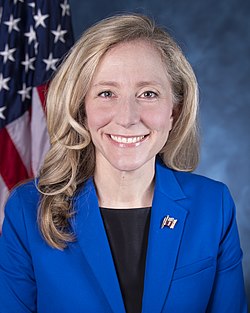Tag: elections
-
Abigail Spanberger (D) wins re-election in Virginia's 7th Congressional District

Incumbent Rep. Abigail Spanberger (D) defeated challenger Nick Freitas (R) in Virginia's 7th Congressional District. Spanberger was first elected to the U.S. House of Representatives in 2018, defeating incumbent Rep. Dave Brat (R) 50% to 48%. Preliminary results indicate Spanberger won re-election by a similar 51% to 49% margin. The 7th District was one of…
-
Revisiting the two presidential election recounts in 2016

Following the 2016 presidential election, two states—Wisconsin and Nevada—conducted recounts after receiving requests from candidates. Neither recount changed the election outcome. Below is a brief look at those recounts, who requested them, and what effect they had on vote totals Wisconsin Green Party candidate Jill Stein requested a full recount in Wisconsin on Nov. 25,…
-
Nehls defeats Kulkarni, LeBlanc in Texas’ 22nd Congressional District
Troy Nehls (R) defeated Sri Preston Kulkarni (D) and Joseph LeBlanc (L) in the general election for Texas' 22nd Congressional District on November 3, 2020. Incumbent Rep. Pete Olson (R) did not run for re-election. This was the second time Kulkarni ran as the Democratic nominee in Texas' 22nd. In 2018, Olson was re-elected with…
-
Thissen wins re-election to Minnesota Supreme Court
Incumbent Paul Thissen defeated challenger Michelle L. MacDonald for a six-year term on the Minnesota Supreme Court. One of the seven seats on the Minnesota Supreme Court was up for nonpartisan election this year. Thissen, a former Democratic speaker of the state House, is one of five justices currently on the court to have been…
-
Knudsen defeats Graybill in Montana attorney general race
Austin Knudsen (R) defeated Raph Graybill (D) in the election for Montana attorney general. Incumbent Tim Fox (R) did not run for re-election. Montana’s attorney general is the state's chief legal officer, chief law enforcement officer, and director of the Montana Department of Justice. The results of Montana's gubernatorial, attorney general, and secretary of state…
-
Christi Jacobsen (R) defeats Bryce Bennett (D) in Montana secretary of state race
Christi Jacobsen (R) defeated Bryce Bennett (D) in the general election for Montana Secretary of State. Incumbent Corey Stapleton (R) did not run for re-election, instead running in the Republican primary for Montana's At-Large Congressional District. The results of Montana's gubernatorial, attorney general, and secretary of state elections transitioned the state from divided triplex control…
-
Washington, D.C. voters approved Initiative 81 76% to 24% according to unofficial election night results
Initiative 81 declares that police shall treat the non-commercial cultivation, distribution, possession, and use of entheogenic plants and fungi as among the lowest law enforcement priorities. Examples of decriminalized substances include psilocybin mushrooms, also known as magic mushrooms or shrooms, peyote, and iboga. This makes D.C. the fifth city after Oakland and Santa Cruz, California;…
-
Roger Williams elected to fifth term in Texas' 25th Congressional District
Incumbent Roger Williams (R) defeated Julie Oliver (D) and Bill Kelsey (L) in the general election for Texas' 25th Congressional District. The race was one of 56 rematch elections in the U.S. House. Oliver challenged Williams in the 2018 election, losing 54% to 45%. In 2016, Williams carried the district 58% to 38% as Donald…
-
Stephanie Bice defeats Kendra Horn in Oklahoma’s 5th Congressional District election
Stephanie Bice (R) defeated incumbent Kendra Horn (D) in the general election for Oklahoma's 5th Congressional District. Horn was first elected in 2018 after defeating incumbent Rep. Steve Russell (R) 51% to 49%. Oklahoma’s 5th was one of 43 seats that flipped from Republicans to Democrats in 2018. Bice had served in the Oklahoma state…


